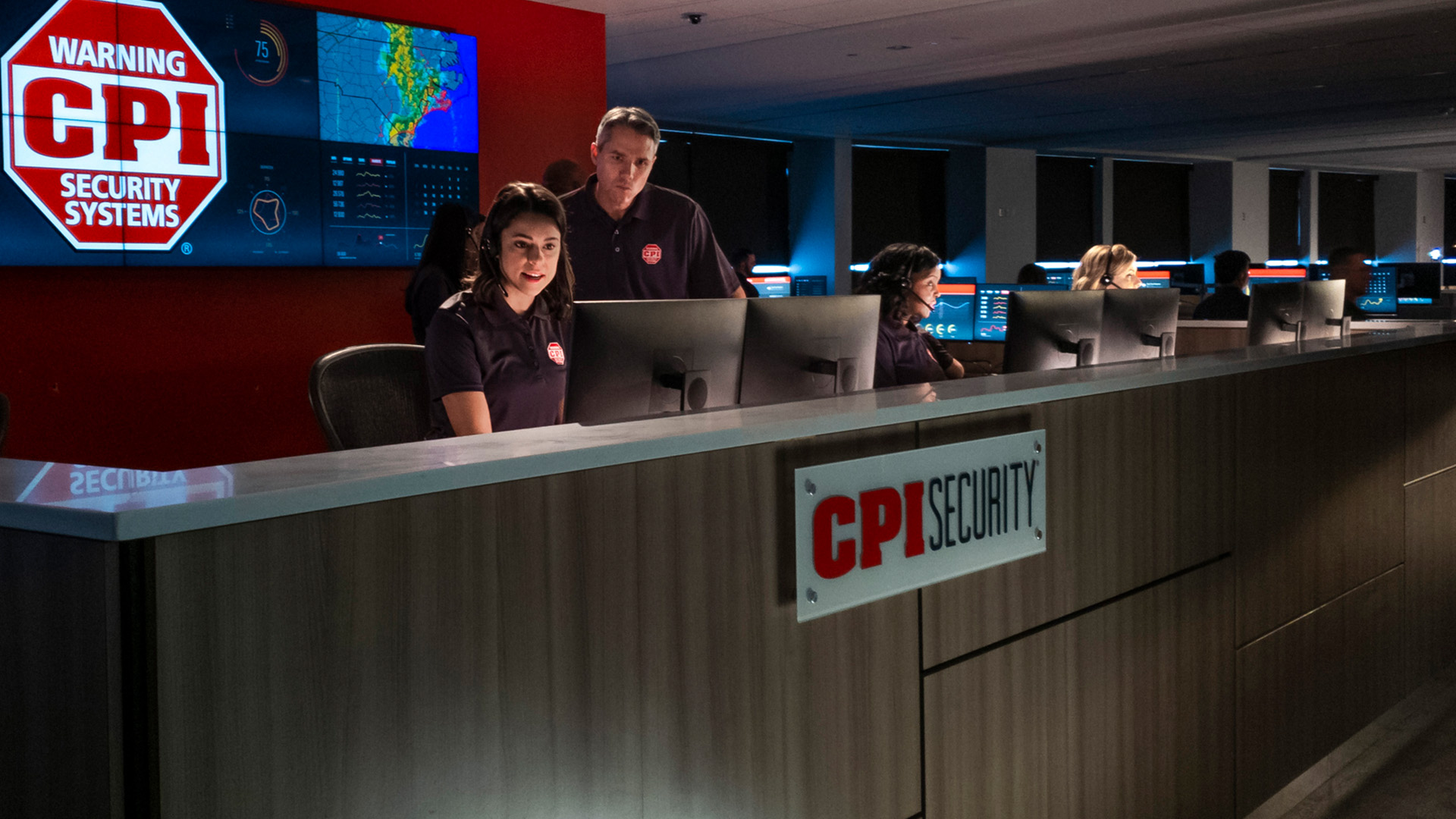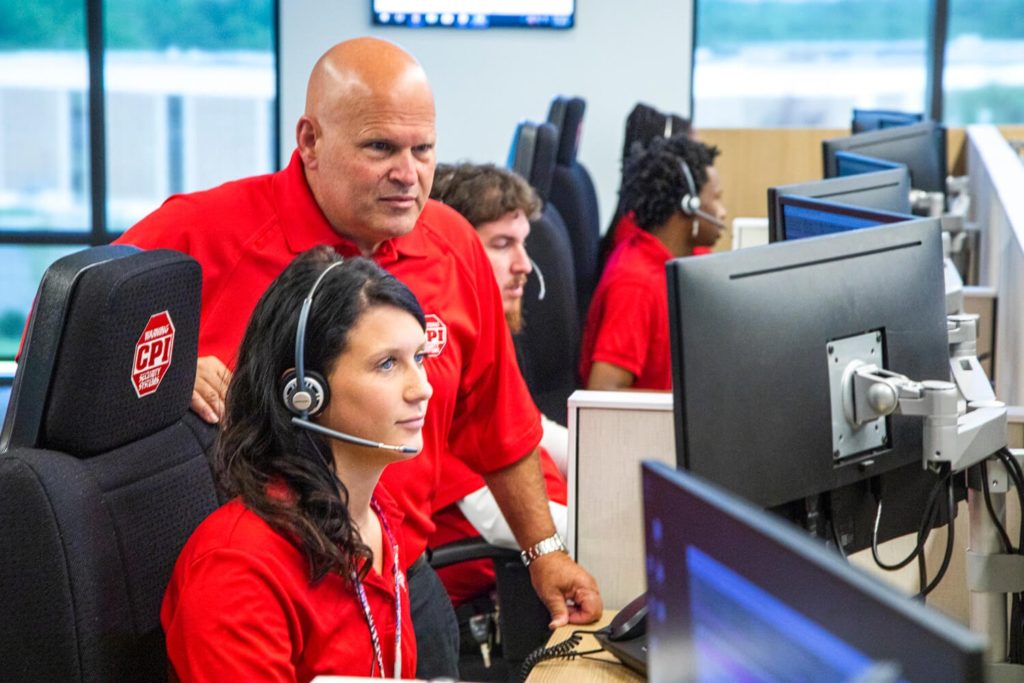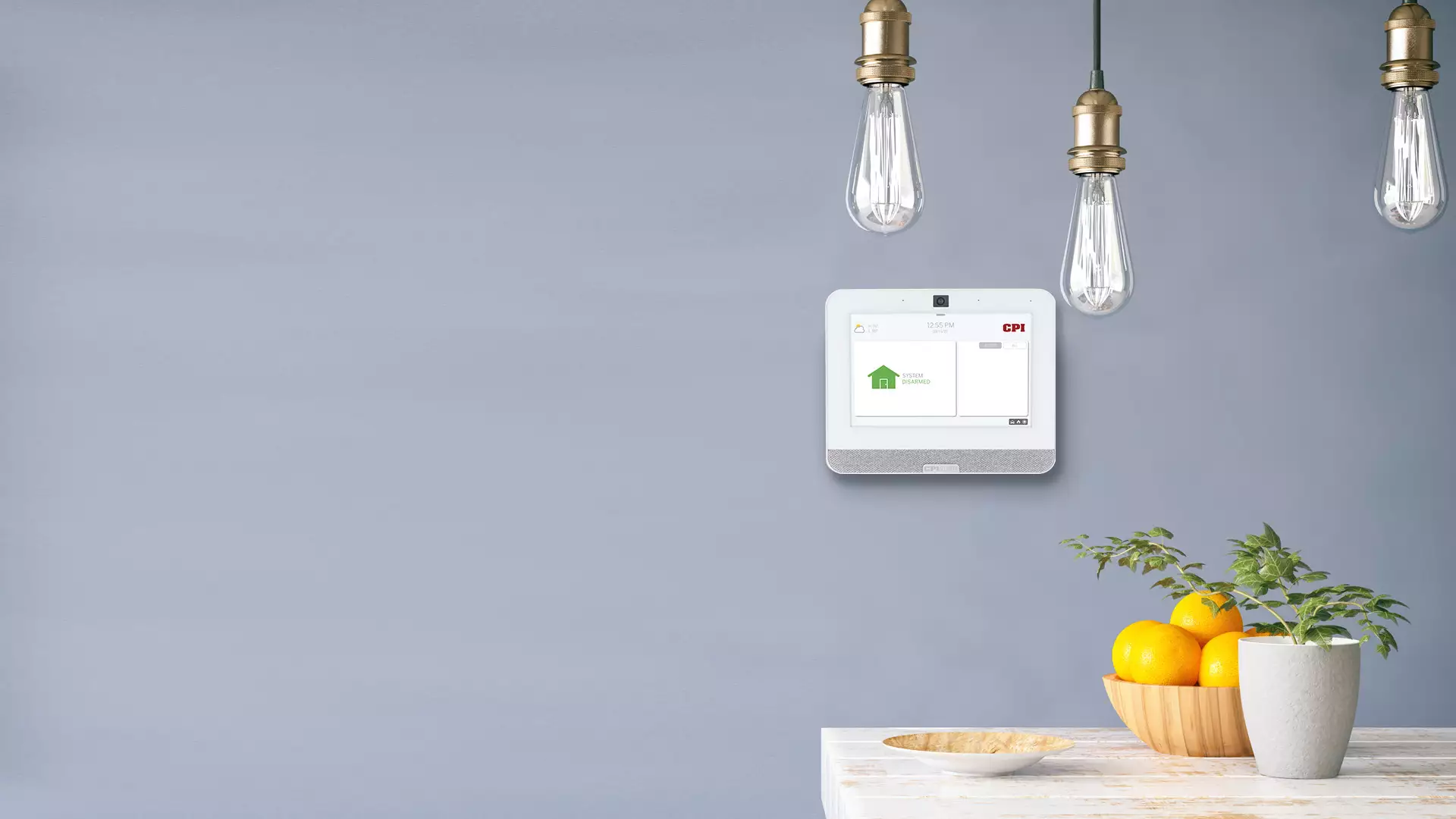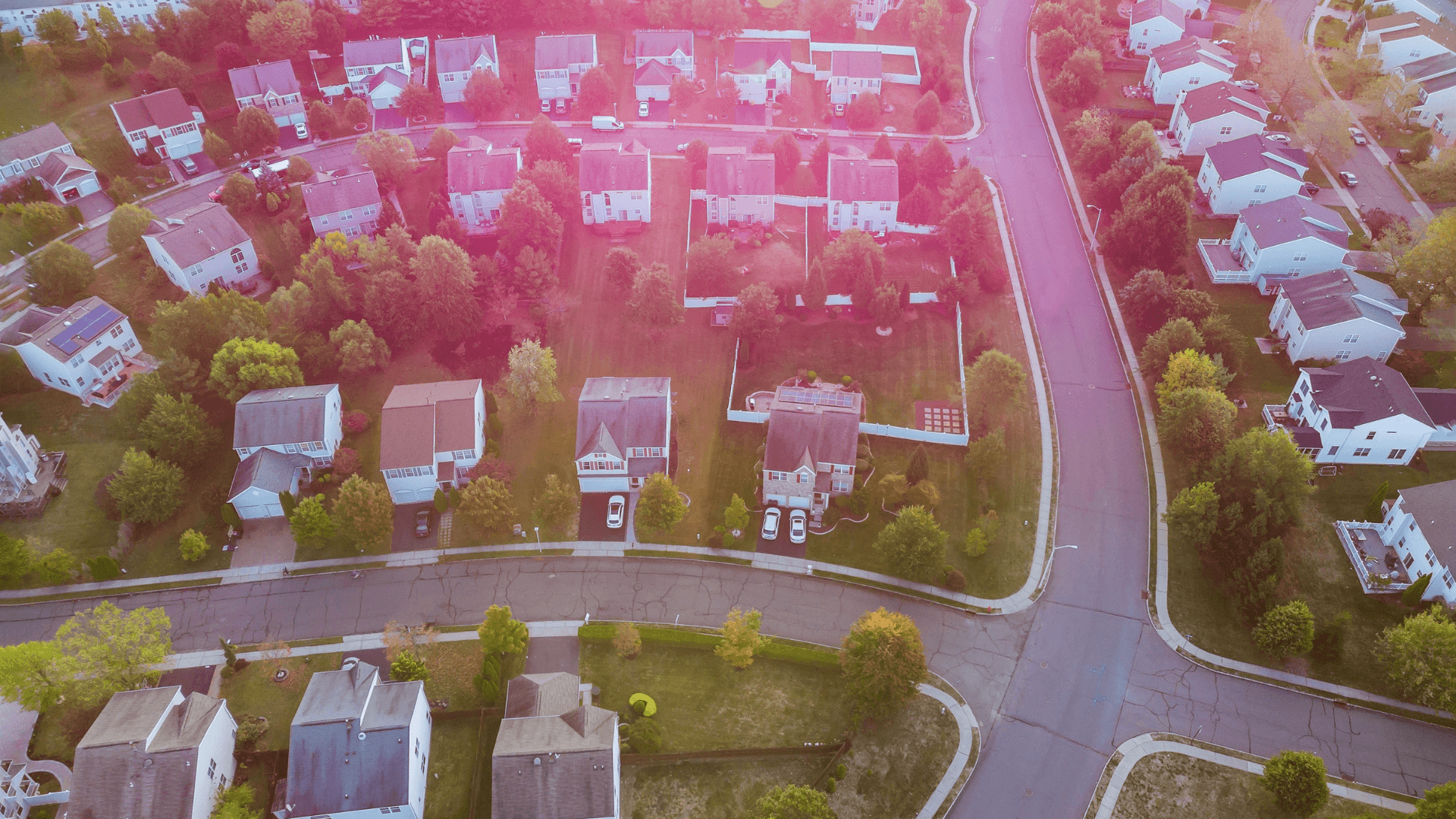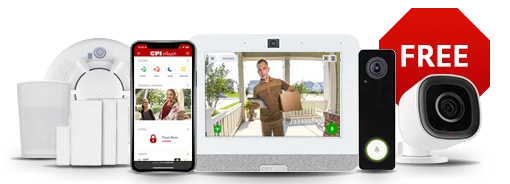After much deliberation, you’ve decided that a security system would be a great way to protect your home, family, personal property, and even your pets. After all, the last thing you need to worry about is what you’d do if someone breaks into your house.
Deterring theft, burglary, or robbery with an alarm system is a smart decision for your entire household. But before purchasing your system, you do have another decision to make, one that could have a big impact on your level of protection: self-monitoring vs professional monitoring, which should you choose?
Many opt for a professional security system, meaning it’s designed, installed, and monitored by security experts. However, some people choose to take a DIY approach to their home security, meaning they choose their products, and install and monitor their system on their own, rather than signing up for a security monitoring service. Both are popular options, but with self-monitored systems, are people getting the protection that they need – and that their families deserve? Let’s take a closer look at the differences between monitored home security systems and self-monitoring security systems.
What Is a Monitored Home Security System?
If you see the word “monitored,” the alarm system in question most likely has a professional security monitoring service associated with it.
When you sign up for a professional home monitoring system, it means you’ve got a team of trained experts on call 24/7 in a central station or monitoring center. They’re observing signals from your security system, and ready to respond in real-time in the event of an alarm. Those experts are trained in things like:
- How to respond to different types of emergencies (think break-in, fire, carbon monoxide, or medical)
- What processes to follow to contact you when something’s wrong
- How to get help quickly, thoroughly, and effectively
- Who to send to your home for the kind of help you need
- How to help identify false alarms and provide the necessary reassurance
There are also different types of professional security monitoring services. As you research self-monitoring vs professional monitoring alarm systems, you’ll see that many providers subcontract a third-party monitoring service.
Others keep this critical service in-house, ensuring that its security experts are educated in your specific system or security platform – which makes it easier for them to interpret what’s happening and take the right action.
When you secure your home with a CPI Security monitored home security system, you’ll have the peace of mind that comes with our world-class Five-Diamond Certified, UL Listed Monitoring Center, Central Station (more on that later), and our in-house professional alarm monitoring team who know our products inside and out.
What Is a Self-Monitored Home Security System?
Calling an alarm system “self-monitoring” is a bit misleading, so when you hear the term, pay close attention. What self-monitored home security really means is that you – or your spouse, partner, or other responsible member of your household – will be the one on call.
Here are some of the ways unmonitored home security systems communicate with you
Alarms or Sirens
This is the most obvious way a self-monitoring alarm system lets you know something’s up. If you’re home and you know that late-night “woooo-woooo-woooo” is your teen forgetting to disarm the system when they come home, great.
But what if your alarm goes off unexpectedly and you don’t have your phone nearby to check your app or call the authorities? Unsettling, isn’t it?
Home security is supposed to provide you with peace of mind, not stress from the added pressure of monitoring your system on your own for break-in, fire, or carbon monoxide emergencies.
Video Feed
Advances in home monitoring systems and products mean you could have a highly sophisticated home security camera – like CPI cameras that can distinguish a person from an animal or vehicle, for example. But identifying a thief on a video clip after the fact is a lot different from having a professional monitoring team use cameras to assess the situation, catch them in the act, and relay vital information to the authorities in real-time.
Here’s the bottom line about self-monitoring home security systems: even with the most connected, advanced setup available, if there’s no one paying attention and ready to spring into action when an alarm goes off, is that the level of protection you’re comfortable with?
What Are The Benefits of a Monitored Alarm System?
There are a lot of excellent reasons to choose a security provider with a monitored alarm system.
A Home Monitoring System Means You Won’t Deal With Trouble Alone
It’s easy to opt for the perceived simplicity of DIY products or systems, especially since products sold by standard DIY companies seem similar to products sold by companies with monitored security.
Unfortunately, that can also lead consumers to believe they get the same benefit of professional security in an unmonitored home alarm system that they’ve pieced together with different products.
However, there’s a critical difference, and it’s extremely important to understand that just because you have a doorbell or a smart lock doesn’t mean you have home security.
When people choose that route, their phone may be crowded with a different app for each product, making it more cumbersome to fumble from app to app in an emergency. But not only do these products often fail to integrate with each other – when there’s an actual emergency, there’s no one to connect to for help.
A Security Monitoring Service Isn’t Just for Break-ins
While it’s called a monitored home security system, “security” is about more than just deterring intruders or preventing burglary. Many professional security systems include connected and/or smart products that protect your household in other ways:
- Fire – If your system has a connected smoke detector and fire breaks out, your security monitoring service will verify the alarm, stay with you over the two-way speaker as you exit the home, and send the fire department immediately.
- Carbon Monoxide – Similar to a smoke detector, CO detectors alert your security monitoring team so they can verify the emergency, stay with you over the two-way speaker as you exit the home, and send help, protecting you from this deadly gas.
- Medical Emergencies – There are also medical and wellness alert products, like the CPI Medical Pendant, that connect to a monitored alarm system. When the button on the pendant is pressed, it signals our monitoring team to verify the emergency and send help if needed.
They also provide a range of other benefits:
- Addresses and Deters Crime – Professionally monitored security systems with video and two-way voice audibly challenge intruders upon activation. When an alarm sounds, they alert the intruders that they’re being monitored and authorities can be contacted. Intruders are more likely to flee than remain in the home when confronted with an audial alert.
- Provides Product Service Alerts – Professionally monitored security systems are supervised to ensure devices stay connected to the alarm panel, and that the alarm panel can communicate with the monitoring center. Alerts like low batteries, wireless communication troubles, environmental, and safety device monitoring alerts ensure your system is working, regardless of your availability, and alert you when your system requires service.
- Accurate Access to 911 Command Centers – If you dial 911 during an emergency and you’re not in your home zip code, you’ll be routed to the regional center you’re calling from, not the authorities in your home’s jurisdiction. Monitoring centers ensure your alarm signals are responded to with the correct authorities in the correct jurisdictions for a fast response when every second counts.
- Peace of Mind – Most monitoring centers stay online with you until the proper authorities arrive and even provide specific instructions to exit the home during fire or CO emergencies. This brings peace of mind to what can be very chaotic moments when alarm systems are activated. During product-based issues, professionally monitored teams can provide technical support to address conditions directly, or schedule service if needed.
In short, unmonitored home security systems can create a false sense of safety and ease of use, while increasing the burden on you.
Benefits of a Self-Monitored Home Security System
For some people, there may be some slight advantages to unmonitored home alarm or security systems, as opposed to signing up for a security monitoring service.
Usually, when someone opts out of the professional service that accompanies their home monitoring system, it’s because they don’t want to spend the money. That’s understandable – at first. After all, if you’ve just purchased a professional security system, one that includes an app and smart notifications, why should you have to spend on monitoring?
It’s true that those who are extremely tech-savvy – and who are naturally glued to their screens for other reasons – may feel comfortable keeping tabs on things themselves. But that’s a risky move, even for smartphone pros.
If you’re the one experiencing the home emergency and can’t call for help, or if a criminal is using threats or coercion to get you to disarm the system or take other action, no amount of tech expertise will save the day.
While it may seem like a smart idea to save a few dollars and forego a security monitoring service, it’s a decision you might regret in the moment when it matters most.
What is a Five Diamond Certified, UL Listed Monitoring Center?
There’s an added level of security when you choose a monitored home security system instead of a self-monitoring security system. But how can you make sure you’re signing up with a reputable, effective central monitoring service? Ask your potential home monitoring system provider about whether their monitoring center has received Five Diamond certification.
The Monitoring Association (TMA) is the industry trade organization that represents the professional monitoring industry. TMA developed its prestigious Five Diamond certification to recognize monitoring centers that meet a certain set of standards. These standards are five “points of excellence” that represent a commitment to:
- Inspections and quality standards by a nationally recognized testing lab, such as UL, FM Approvals, or Intertek/ETL.
- Delivering the highest level of customer service to their professional monitoring service clients.
- Providing their teams with ongoing job education and testing, and having 100% of their operators TMA certified.
- Raising industry standards through membership in TMA and participation in the organization’s activities.
- Reducing false dispatches that use up valuable community resources.
TMA grants its Five Diamond designation on an annual basis to monitoring centers that satisfy all of those commitments.
By maintaining high standards, TMA helps ensure the integrity of the professional security monitoring service you’re subscribing to – helping you get the most out of your home monitoring system.
CPI Security is proud to be a Five-Diamond Certified, UL Listed Monitoring Center. Our cutting-edge Real-Time Response helps reduce false alarms due to Verified Alarms – meaning emergencies are confirmed when the authorities are contacted.
This means your alarms are given high-priority response, reducing the likelihood of time-consuming false dispatches and helping to ensure that the right kind of help gets to you when you need it most.
The Evolution of Security Monitoring Services in 2024
Today’s monitoring services leverage advanced technologies like artificial intelligence (AI) and machine learning to provide more accurate threat detection and reduce false alarms.
As we move forward, the role of AI in security monitoring services is becoming increasingly significant.
With AI, monitoring services can offer more than just alarm responses; they provide predictive analytics, identifying patterns that may indicate potential security risks. This proactive approach allows homeowners and monitoring teams to prevent incidents before they occur, offering a new level of security and peace of mind.
Navigating the New Age of Monitoring Services with Smart Devices
The Internet of Things (IoT) has revolutionized home security, offering homeowners unprecedented control and connectivity. IoT-enabled security devices can communicate with each other, creating a cohesive system that not only enhances security but also offers convenience and efficiency.
Incorporating IoT devices into your home security system can transform how you monitor and protect your home. By integrating smart locks, cameras, and sensors, you create a network of devices that not only secure your premises but also offer convenience through automation. For instance, a smart security system can automatically lock doors at a certain time or turn on lights when motion is detected, deterring potential intruders.
Monitored vs. Self-Monitored Home Security – Which Will You Choose?
From how a system works, to the level of protection you receive, there’s a lot to consider when weighing the value of your peace of mind to the value of the security system. If you’d like to learn more about the benefits of professionally monitored home security systems, visit our website today.
